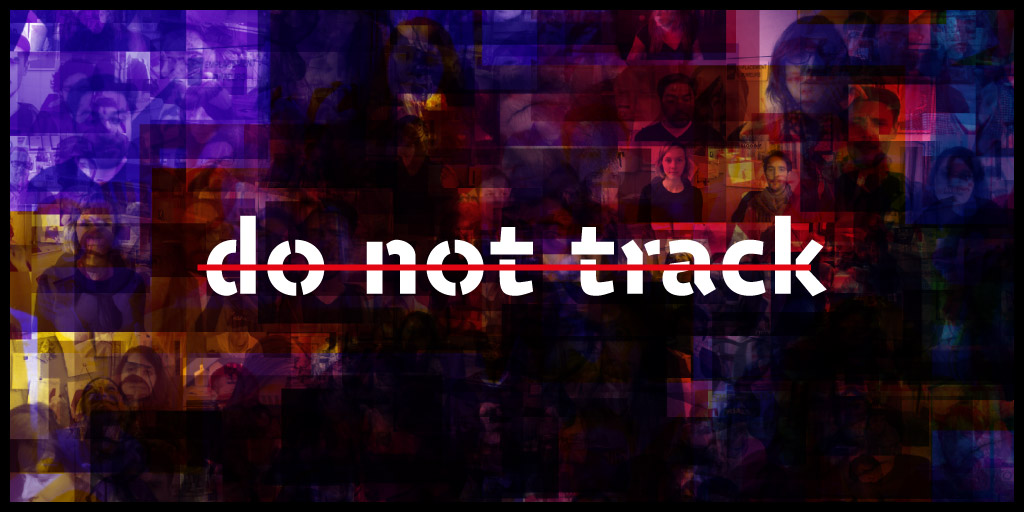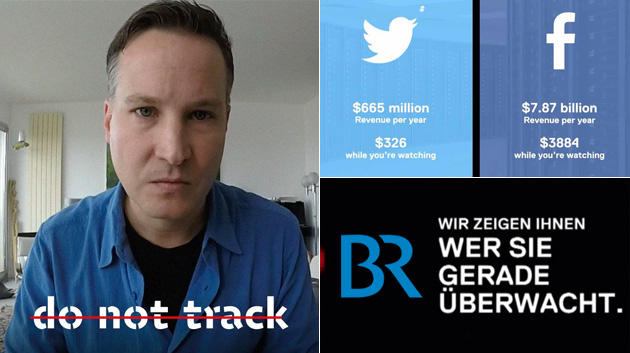A new documentary film experience takes its viewers behind the screen in order to show – in real-time – how they are being tracked online.
Directed by award winning Canadian media producer Brett Gaylor, this new multi-episode online series shows how the personal data and digital identities of billions of online users is being tracked and sold online.
This means you! And even if you think you know how much the Web knows about you, you will be astonished by what is revealed in this series.

Directed by award winning Canadian media producer Brett Gaylor, this new multi-episode online series shows how the personal data and online identities of billions of online users is being tracked and sold online.
Gaylor’s digital documentary series is called Do Not Track, and we can watch if we dare: how often we – wittingly or not – share online information in hopes of a ‘more personalized experience’ and or getting more ‘customized content’ is quite astounding.
Whatever it is we get in return for giving up such data, it seems the collectors get more – storing, analyzing and monetizing our data has become crucial to their bottom line.
So in this new seven-part series, documentary filmmaker Brett Gaylor interviews public media broadcasters, journalists, Web and mobile app developers, graphic designers, independent media makers and more, in order to uncover how modern information and communications technologies are being used to build an online space where users’ movements, speech and identities are recorded and tracked across mobile phones, social networks, targeted advertising platforms, cloud-based big data repositories and more.
We live in “a world of relentless surveillance” says one series guest.
Gaylor has also worked with a number of authors and directors in creating each different episode, so each has a different look, feel and structure: Vincent Glad, Zineb Dryef, Richard Gutjahr, Sandra Rodriguez, Virginie Raisson and AKUFEN were all involved in the production, as were Paris-based production company Upian; the National Film Board of Canada; French/German public broadcaster Arte; and German public broadcaster Bayerischer Rundfunk. Radio-Canada is the Canadian broadcaster.

Do Not Track episodes launch every two weeks through June 9; about seven minutes each, they are available with English, French, French Canadian and German audio tracks.
Do Not Track episodes launch every two weeks through June 9; about seven minutes each, they are available with English, French, French Canadian and German audio tracks.
Helpfully, and somewhat hopefully, Gaylor provides (in his film work and subsequent interviews) some helpful tips to help manage, control or even eliminate the tracking. He offers up some unique ideas and specific tools that can be used, while also presenting more broadly based suggestions and advice that, happy to say, echoes much of the information that has been shared here on WhatsYourTech.ca (you’ll see that one such tip is about reading the privacy statement and/or user manual – not a lot of fun, perhaps, but rather important – and that goes not just for WhatsYourTech.ca, but any website you visit, app you use, and any device you purchase.)
Having a strong, protective password is important, too – “liquid” passwords are tougher to remember, but also tougher to hack.
As much as digital technology and software programs can be used to track online identity, there are such tools that can be used to protect it, as well. Add-ons and extension for Web browsers, and app analyzers for mobile devices, can be used to tell you just what kind of tracking tools are working on or in your system, what personal information they’re collecting and rerouting, and what you can do about it.
Gaylor reminds us – gee, thanks a lot! – that privacy can be threatened and personal data compromised in any number of situations, not all of them involving high-tech.
The next time that cheerful cashier asks for your email address or postal code while ringing up a simple in-store purchase, the next time you’re asked to fill out a loyalty program questionnaire, even the next time you get a call from an apparent Canada Revenue Agency representative, asking for your tax information, be careful, be wary, be protected.
And don’t get tracked.
Do Not Track is produced by Paris-based production company Upian; the National Film Board of Canada; French/German public broadcaster Arte; and German public broadcaster Bayerischer Rundfunk
Distribution partners are Radio-Canada (Canada) and digital news channel AJ+ (U.S.).
Gaylor directed the award-winning NFB co-produced documentary RiP! A Remix Manifesto, created Open Source Cinema.org, and before making Do Not Track, led the Mozilla Foundation’s Webmaker initiative to help turn consumers into creators.
-30-
submitted by Lee Rickwood



